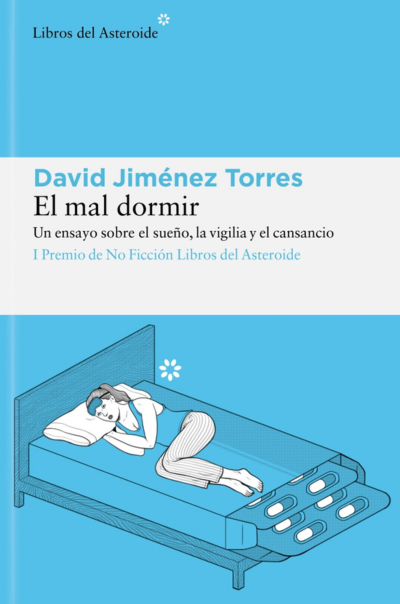In her first appearance in this legislature, the Defence Minister presented the general lines of her Department. During her speech, she pointed out that our Defence policy must be outside partisan disputes, with the rank of State policy, in order to achieve maximum consensus. Margarita Robles highlighted the role of Spain as a caring and active country in the search for peace. And she added that, in order to continue with this role, we must have modern Armed Forces, adapted to the new times. Within the framework of this objective, the Ministry must foresee how the technological revolution will affect its human capital. To be at the forefront of the latest developments, we must promote talent and, in addition, equality between men and women.
To achieve this, the minister stressed the importance of solving the situation of those military personnel who conclude their long-term commitment. In this sense, the response given by the Ministry consists of facilitating access to the Middle Degree Title, a greater number of permanent positions, and more places for access to Public Administrations. Another of the measures targeted was its inclusion in the provision of external services, which are currently provided by external companies.
On the other hand, Robles referred to the area of resources and capabilities, with special emphasis on Spanish participation in the Permanent Structured Coordination of Defence (PESCO in Spanish), whose objective is to “obtain the maximum possible return on investment in these projects”. Within this section, she mentioned the key modernisation programs for the Ministry:
- Future Combat Air System (FCAS), of which Spain is a full member.
- Wheeled Combat Vehicle (8X8 VCR); this program is an absolute priority. The Spanish Army cannot do without it. An expenditure ceiling of 2,100 million euros has already been budgeted for the construction of 348 units. The minister announced that there is a proposal from Santa Bárbara, SAPA and Indra, which may be approved.
- S-80 submarine; the first in the series is already in the testing phase and will be fully operational by the end of the year.
- F-100 frigates; They are already under construction, and the five units are expected to be delivered between 2026 and 2031.
- Communications / Satellites; Special relevance of the Galileo Programme of the European Union.
Lastly, the minister stressed the need to promote the culture of defence, and greater knowledge of the Armed Forces by civil society. Furthermore, she highlighted the emergence of a new geopolitical context, dominated by the confrontation of the great powers, in which Spain has a firm commitment to NATO and the strategic autonomy of the European Union. Both positions, according to Robles, are complementary.
However, this appearance left outside some headlines that cannot be ignored. For example, the statement that «it is impossible for Spain to reach the goal of 2 percent of GDP in defence investment.» Nobody understands how we can be a very reliable partner and ally and, at the same time, grossly fail to fulfil the agreed commitments.
Nobody understands how we can be a very reliable ally and, at the same time, grossly fail to fulfil the agreed commitments.
Beyond the high-sounding phrases, the minister did not give a specific figure on the forecast that the Department is handling of a possible increase in the defence budget.
Another key that emerges from this intervention is the absolute kidnapping to which the Spanish Government is subjected. The ERC representative said, as the first declaration of intent, that «if the dialogue works, we will have a legislature.» This phrase reflects to what extent the National Executive is subject to the decisions of its coalition partners.
For their part, the spokespersons for EH-Bildu and PNV, sitting together, came to question the manoeuvres of the Armed Forces by Basque mountains, and even classified the military commanders as supporters of Francoism. As for the PSOE spokesperson, she described the performance of Ortega-Smith as that of «a geek, a Rambo», which does a «disservice» to the defence, by making «our soldiers are perceived as targets outside».
These declarations contradict the idea that the Minister herself held about the need for a consensus regarding defence, since it is impossible to reach it with political forces that are committed to the dismemberment of Spain, who reject the transatlantic relationship outright (case of ERC), or the fact they even want to politicise all levels of the Armed Forces.
As I have been pointing out, the vital functions of the ideal State for a classical liberal are two: defence and justice. If both are underfunded, no State can fulfil its obligations to citizens. Furthermore, a not inconsiderable conclusion follows from this fact: that the situation of these Departments is not accidental. The lack of resources for both means rendering the State inoperative, which allows other entities to assume a greater role.
However, some liberals do not understand that different currents of thought coexist within liberalism. In fact, the famous «distribution of liberal IDs» is what has led this ideology to its absolute irrelevance. The reduction of the Spanish elephantine State constitutes the common house from which any liberal proposal must start. In the case of classical liberalism, it is evident. An increase to 2 percent in Defence and another 2 percent in Justice would suppose small budgetary increases, which would come accompanied by adjustments in other areas to which much more relevance is given in the General State Budgets. However, if we continue in the futile fight to see if one is more papist than the Pope, the hand will continue to be led by the statists and the enemies of Spain.
We, liberals, must not forget what moves us: freedom. The attempt to reduce liberalism to a single current of thought supposes a frontal attack on the same idea of freedom, something more typical of more totalitarian schools of thought.






